On October 24th, a national scientific conference on the theme "Modernizing and elevating Vietnamese higher education, creating breakthroughs in the development of high-skilled human resources and talents, leading research and innovation" was held at the Vietnam National University Ho Chi Minh City (VNU-HCM). The conference was jointly organized by the Central Propaganda and Mass Mobilization Department, the Party Committee of the Ministry of Education and Training , and VNU-HCM. The aim was to disseminate and guide the implementation of Resolution No. 71-NQ/TW dated August 22, 2025, of the Politburo on breakthroughs in education and training development. The event featured reputable speakers from central agencies, leading universities, and international organizations.
There are still many shortcomings.
In his opening remarks at the workshop, Mr. Nguyen Trong Nghia - Member of the Political Bureau, Secretary of the Central Committee of the Party, Head of the Central Propaganda and Mass Mobilization Department - urged experts and scientists to focus their discussions on perfecting institutions, mechanisms, and policies. In particular, he emphasized the need for unique and superior mechanisms and policies, a strategic framework for the development of higher education, and streamlined, unified, and effective university governance.
Furthermore, it is essential to accurately assess students' abilities, develop a team of lecturers, researchers, experts, scientists, and educational administrators who possess sufficient competence, qualities, and prestige to meet the requirements of modernization and elevate higher education. Maximizing autonomy mechanisms is crucial to developing competitive incentive policies to attract and utilize talent, especially outstanding experts from both domestic and international backgrounds.

Member of the Political Bureau, Secretary of the Central Committee of the Party, Head of the Central Propaganda and Mass Mobilization Department Nguyen Trong Nghia delivered a speech at the seminar.
Associate Professor Dr. Do Phu Tran Tinh, Director of the Institute for Policy Development at the Vietnam National University Ho Chi Minh City, assessed Resolution No. 71 as groundbreaking for placing education, science and technology, and talent at the center of the country's development strategy. "This is a breakthrough turning point that paves the way for comprehensive autonomy of higher education institutions, coupled with transparent and effective inspection and supervision mechanisms," Dr. Tinh stated.
Regarding the issue of decentralization and delegation of authority in implementing Resolution No. 71, Mr. Tinh stated that the organizational structure and personnel at financially autonomous public service units still have many shortcomings. For example, a university with 40,000 students or 4,000 students can only have a maximum of 3 vice-rectors... Furthermore, current regulations require that at least one of the two supervisors of doctoral students must work at the institution training the doctoral student. This means that even leading professors or internationally renowned scientists cannot independently supervise doctoral students if they are not currently working at the training institution.
Regarding finance, Ms. Tran Thi Anh Nguyet, an expert in education economics at the World Bank, believes that to create a breakthrough in higher education and develop high-tech human resources, Vietnam needs strong investment in finance, infrastructure, talent policies, and public-private partnerships. She argues that higher education is the foundation for developing high-quality human resources, science and technology, and innovation, contributing to socio-economic growth. Therefore, a comprehensive investment in human resources, infrastructure, and public-private partnerships is necessary to achieve a breakthrough.
A flexible mechanism is needed.
At the workshop, many recommendations were also put forward to effectively implement Resolution No. 71. For example, Associate Professor Dr. Le Manh Tu (Phenikaa University) proposed the need for an integrated model between scientific measurement and research funding to bridge the gap between basic and applied research. This would promote innovation, develop strategic technologies, and create a sustainable knowledge cycle in Vietnamese higher education.
Associate Professor Dr. Do Phu Tran Tinh proposed that the Vietnam National University Ho Chi Minh City be allowed to pilot an autonomous mechanism at some key universities in regulating organizational structure and personnel; and to pilot the process of reviewing and recognizing the titles of Professor and Associate Professor at some key universities, applicable to leading, multidisciplinary higher education institutions with strong prestige and scientific potential, and a large number of leading scientists.
Simultaneously, there needs to be more flexibility with exceptionally talented scientists... delegating or authorizing approved key universities to implement training programs for teacher training, health and law fields, and doctoral training.
According to Ms. Tran Thi Anh Nguyet, currently, the demand for human resources in high-tech industries requires 28% to 90% of workers to have a university degree or higher. At the postgraduate level, Vietnam lacks highly qualified personnel, while 64% of Vietnamese talents in 11 strategic technology sectors are working abroad. To attract and retain talent and experts, Ms. Nguyet proposed establishing a fund for "outstanding lecturers/researchers," supporting scholar exchanges, postdoctoral scholarships; improving remuneration and working environment, investing in modern laboratories and research facilities, etc.
In addition, the workshop also included many opinions and proposed solutions such as: granting full autonomy to higher education institutions; attracting talent; improving the working environment; building a system based on job positions; supporting excellent research, etc.
Mobilizing social resources
Resolution No. 71-NQ/TW of the Politburo on breakthroughs in education and training development has set forth strategic goals, tasks, and solutions with a long-term vision for the new development phase of the country. The resolution affirms that the development of education and training is the undertaking of the Party, the State, and the entire people; it is a key pillar for raising the intellectual level of the population, developing human resources, nurturing talent, and creating a central driving force for rapid and sustainable national development.
Breakthroughs in education and training must begin with innovation in thinking, awareness, and institutions; creating strong transformations in resources, motivation, and development space; improving overall quality, ensuring the State plays a leading role, public investment acts as a guiding force, and at the same time mobilizing and effectively utilizing social resources for the modernization of the national education system.
Source: https://nld.com.vn/hien-dai-hoa-nang-tam-giao-duc-dai-hoc-viet-nam-dau-tu-dong-bo-de-tao-dot-pha-19625102420501035.htm



![[Photo] Prime Minister Pham Minh Chinh holds a phone call with the CEO of Russia's Rosatom Corporation.](/_next/image?url=https%3A%2F%2Fvphoto.vietnam.vn%2Fthumb%2F1200x675%2Fvietnam%2Fresource%2FIMAGE%2F2025%2F12%2F11%2F1765464552365_dsc-5295-jpg.webp&w=3840&q=75)



![[Photo] Closing Ceremony of the 10th Session of the 15th National Assembly](/_next/image?url=https%3A%2F%2Fvphoto.vietnam.vn%2Fthumb%2F1200x675%2Fvietnam%2Fresource%2FIMAGE%2F2025%2F12%2F11%2F1765448959967_image-1437-jpg.webp&w=3840&q=75)
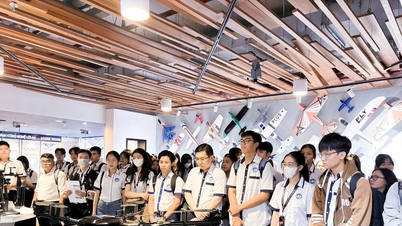



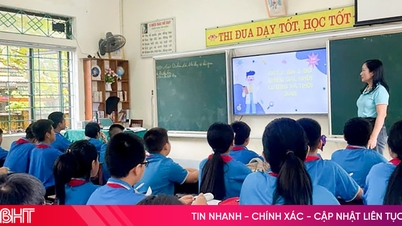

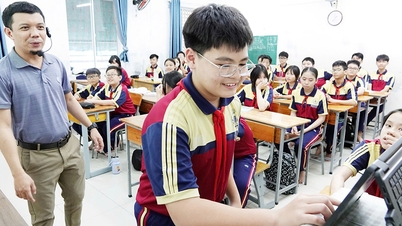

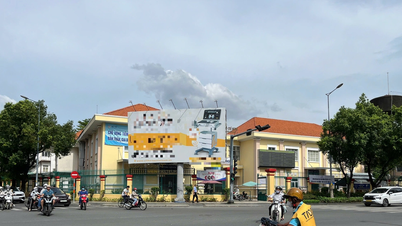

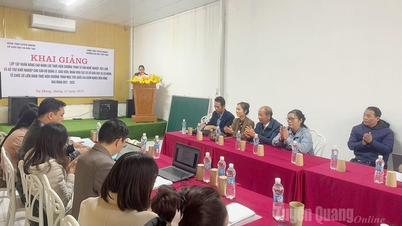



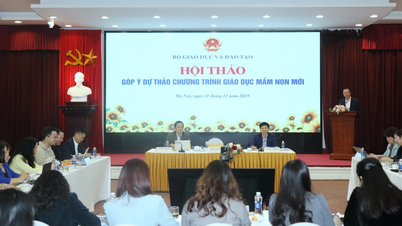


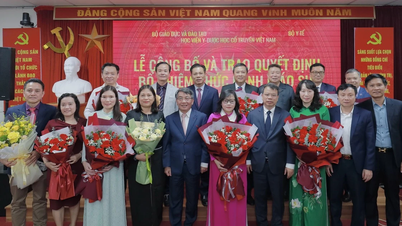
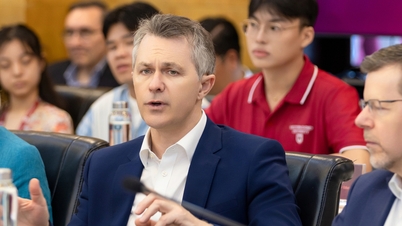
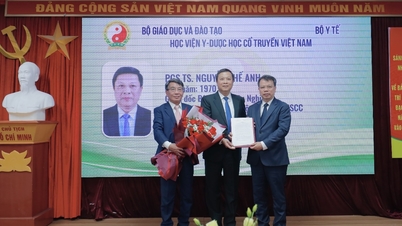





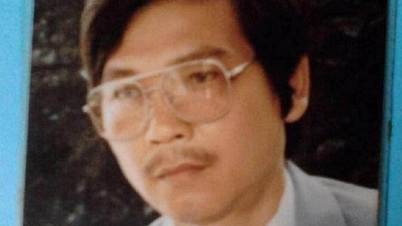


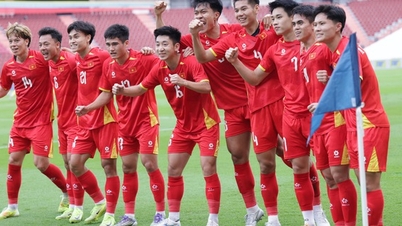

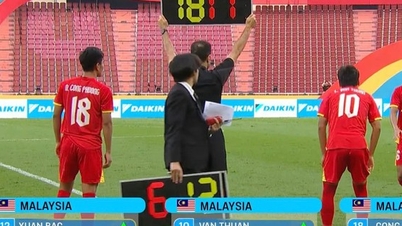























![[OFFICIAL] MISA GROUP ANNOUNCES ITS PIONEERING BRAND POSITIONING IN BUILDING AGENTIC AI FOR BUSINESSES, HOUSEHOLDS, AND THE GOVERNMENT](https://vphoto.vietnam.vn/thumb/402x226/vietnam/resource/IMAGE/2025/12/11/1765444754256_agentic-ai_postfb-scaled.png)





























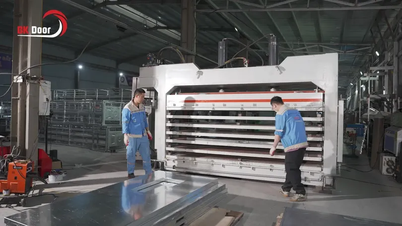





















Comment (0)